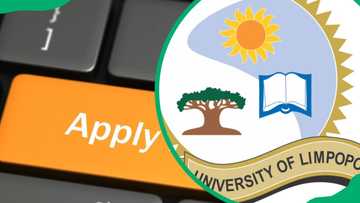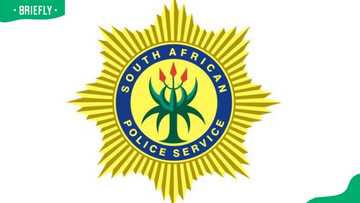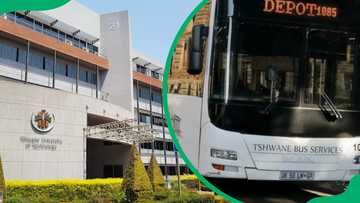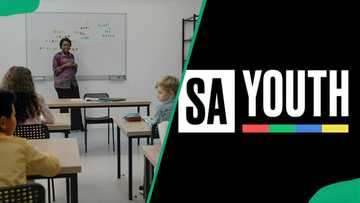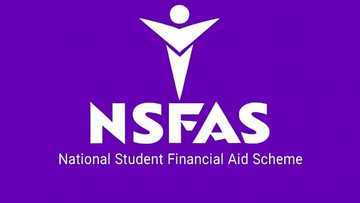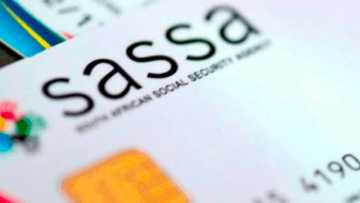Durban University of Technology application: Courses, fees and requirements
Pursuing admission into the Durban University of Technology has become easy, especially with the online application. Specific processes must be followed, and individual requirements must be met before admission. Here is all you need to know about the Durban University of Technology application process, fees, and courses.

Source: UGC
TABLE OF CONTENTS
- Key takeaways
- Durban University of Technology application
- DUT courses and requirements
- Durban University of Technology application fee
- What is the Durban University of Technology's ranking?
- Is it possible to apply to DUT without CAO?
- What are the courses that require 20 points at DUT?
- Are DUT degrees internationally recognised?
- Is Durban University of Technology public or private?
- Does DUT accept international students?
- Which are the DUT campuses in Durban?
- Are there higher certificate courses at DUT?
- Is there DUT late applications in 2026?
- Durban University of Technology contact details
Key takeaways
- All first-time undergraduate applications to DUT are processed through the Central Applications Office (CAO).
- Admission criteria vary based on the program level.
- DUT's academic programs are organized into six faculties.
- The faculties are Accounting and Informatics, Applied Sciences, Arts and Design, Engineering and the Built Environment, Health Sciences, and Management Sciences.
- Tuition fees at DUT vary depending on the chosen program.
Durban University of Technology application
The process of the Durban University of Technology application for 2026 is simple. All applications are made from the official website of the CAO (Central Applications Office). In KwaZulu-Natal, the CAO is responsible for processing all new university applications.
How do you apply to the Durban University of Technology?
As a rule, they only allow one application from an individual to one institution. To complete your DUT online application, go to the CAO student portal. Before you rush to create a DUT online application login, ensure that you have the following:
- A functional email address.
- Your APS calculation. This is the Admission Point Score, which you need before applying to the school. It is crucial because, in South Africa, tertiary institutions use the score to know if prospective candidates meet the requirements of a course of study.
- You would be required to take the NBT (National Benchmark Test), which is part of the criteria in the application.
- Your scanned academic results, which you will upload during the application. Ensure that they are the latest.
- International students who want to register at DUT are expected to provide a study visa, proof of English proficiency, and South African medical aid cover.
Once the Central Applications Office has captured your application and all your documents have been verified based on the requirements, you will be invited to an entrance test/interview.
If your interview/entrance test is successful, you will be given a conditional admission and then required to deposit to secure your admission.
Note: Unlike undergraduate admissions handled through the CAO DUT application, Master’s and Doctoral study applications must be sent straight to the relevant academic department.
Is DUT open for the 2026 application?
No, the deadline for submitting an application to Durban University of Technology (DUT) for the 2026 school year was September 30, 2025.
DUT late online application for 2026
To be considered "late," an applicant must have submitted their application after the Durban University of Technology application deadline has passed. Applications for the year 2026 were due on September 30, 2025. Programs that did not reach their intended enrollment targets by 2026 will not have their late applications reviewed by DUT.
How do you check your application status at DUT?
To track your DUT admission status after applying through the CAO, simply follow the steps below:
- Visit the official website of the Central Applications Office.
- Then, select and enter any of your identification, CAO, or passport numbers.
- Once you have correctly filled in the information, click the "Submit" button, and your status will be displayed afterwards.

Source: UGC
DUT courses and requirements
If you are ready to learn at Durban University, you must remember that early registration is an added advantage. This is because registrations usually close at different periods in the year, although it depends on what course you are applying for.
Therefore, to apply, the following are what you need:
- You can't enroll in a Higher Certificate program without first obtaining a recognized NSC from Umalusi, the Council for General and Further Education and Training. At least three English proficiency levels are required for the National Senior Certificate.
- To enroll in a diploma program, you must first get a certified NSC from Umalusi, the Council for General and Further Education and Training. On the other hand, the National Senior Certificate requires a minimum of three English courses and a maximum of four other approved disciplines.
- A certified National Senior Certificate (NSC) from the Council for General and Further Education and Training (Umalusi) will be required for Bachelor’s Degree programs. The certificate should have at least three in English and any other four subjects recognized by NSC.
What courses are available at DUT?
The University of Durban has six faculties, each offering different courses that are internationally accepted. Depending on your choice of course, these are the Durban University of Technology courses as offered by each faculty:
1. Faculty of Accounting and Informatics
The following programs are offered by this faculty:
- Auditing and Taxation
- Finance and Information Management (Midlands)
- Financial Accounting
- Information and Corporate Management
- Information Systems
- Information Technology
- Management Accounting
2. Faculty of Applied Sciences
Within the Faculty of Applied Sciences, students may engage in laboratory work, fieldwork, internships, and projects. Courses offered here include:
- Biotechnology and Food Science
- Chemistry
- Textile Science and Apparel Technology
- Consumer Sciences Food and Nutrition
- Horticulture
- Maritime Studies
- Mathematics
- Physics
- Statistics
3. Faculty of Arts and Design
The Faculty of Arts and Design excels in training students to unlock their expressive and artistic talents. Programmes offered here include:
- Drama & Production Studies
- Fashion and Textiles
- Fine Art and Jewellery Design
- Media, Language, and Communication
- School of Education
- Adult and Community Education Unit
- Centre for General Education
- Video Technology
- Visual Communication
- Softcopy Magazine

Source: UGC
4. Faculty of Engineering and the Built Environment
The faculty offers a wide range of specializations available in different engineering disciplines. They include:
- Architecture
- Chemical Engineering
- Civil Engineering and Geomatics (Durban)
- Civil Engineering (Midlands)
- Construction Management and Quantity Surveying
- Electrical Power Engineering
- Electronic and Computer Engineering
- DCT-REES
- Industrial Engineering
- Mechanical Engineering
- Town and Regional Planning
- Urban Futures Centre
5. Faculty of Health Sciences
The Faculty of Health Sciences offers the following courses:
- Basic Medical Sciences Department
- Biomedical and Clinical Technology
- Chiropractic
- Community Health Studies
- Dental Sciences
- Emergency Medical Care and Rescue
- Homoeopathy
- Medical Orthotics and Prosthetics
- Nursing
- Radiography
- Somatology
6. Faculty of Management Sciences
The following programs are available through the Faculty of Management Sciences.
- Applied Law
- DUT Business School
- Ecotourism
- Entrepreneurial Studies and Management
- Hospitality and Tourism
- Human Resources Management
- Marketing and Retail
- Operations and Quality Management
- Public Management and Economics
- Public Relations Management
- Short Courses
- Wholesale & Retail Leadership Chair
- FMS Postgraduate Studies
To check the complete list of courses offered in the school, check the Durban University of Technology prospectus, which you can download from their website.

Source: UGC
Durban University of Technology application fee
South African nationals pay R250 and international candidates R300 to apply to the Durban University of Technology (DUT) through CAO. Late applications cost R470 and R580, respectively. There is a DUT application fee and a finance rules booklet, which you can download from their official site.
What is the Durban University of Technology's ranking?
DUT is ranked in the 1001-1200th band in the Times Higher Education (THE) World University Rankings. The university was established in 2002.
Is it possible to apply to DUT without CAO?
Early application is encouraged for all overseas undergraduate and graduate students applying through the DUT undergraduate application process. Master’s and Doctoral candidates must submit their applications directly to the relevant academic departments rather than through the CAO.
What are the courses that require 20 points at DUT?
There are several courses offered at DUT that require a minimum of 20 points for admission. They include Analytical Chemistry, Consumer Science, Food and Nutrition, Sport Management, Graphic Design, Journalism, Architectural Technology, and Town and Regional Planning.
Are DUT degrees internationally recognised?
DUT boasts a world-class reputation as a member of the International Association of Universities and the Commonwealth Universities. DUT degrees are internationally recognised, and graduates can work in various states.
Is Durban University of Technology public or private?
Durban University of Technology is a public university of technology. It is located in Durban, KwaZulu-Natal.
Does DUT accept international students?
Durban University of Technology does accept international students. The university is spread across seven campuses in Durban and Pietermaritzburg.
Which are the DUT campuses in Durban?
DUT has five campuses in Durban. They are:
- ML Sultan Campus (The International Office is located here)
- Steve Biko Campus
- Ritson Campus
- City Campus
- Brickfield Campus
Are there higher certificate courses at DUT?
The university offers a variety of higher certificate courses. These courses are typically one-year programs that provide students with the knowledge and skills necessary to enter a particular profession. They include:
- Business Administration
- Ecotourism Management
- Hospitality and Leisure Studies
- Human Resources
- Legal Aspects of Business
- Marketing
- Operations Management
- Public Administration
- Public Relations & Communication
- Retailing
Is there DUT late applications in 2026?
The institution does accept late applications. There is a designated late application period that will close on 25 April 2025, for specific programs.
Durban University of Technology contact details
For further inquiries, the following are the DUT contact details of the institution:
- DUT address: P O Box 1334, Durban 4000
- Phone numbers: 031 373 2000 (Durban) / 033 845 8800 (Pietermaritzburg)
- Email: info@dut.ac.za
The Durban University of Technology application process is fast and straightforward. The institution has always maintained its standards, providing a conducive learning environment and versatile instructors.
Briefly.co.za published an article about Motheo TVET College online application, courses, fees, status check, and requirements. Motheo TVET College upholds and promotes quality training, accountability, confidentiality, and transparency.
The institute has strong stakeholder partnerships that help it meet society's educational and training needs. Learn more about the Motheo TVET College online application process and other details.
Source: Briefly News

Favour Adeaga (Lifestyle writer) Dr. Favour Adeaga is an author, speaker, and coach. He graduated with a degree in Mass Communication from The Polytechnic, Ibadan, Nigeria. He did his internship at The Nation Newspaper and taught diploma students in Newspaper and Magazine courses at the Nasarawa State University, Keffi. He has curated the facts and life hacks category since 2018. Dr Favour is the author of several books available on Amazon. He currently lives in Nigeria. Email: favouradeaga@gmail.com

Adrianna Simwa (Lifestyle writer) Adrianna Simwa is a content writer at Briefly.co.za, where she has worked since mid-2022. She has written for many periodicals on a variety of subjects, including news, celebrities, and lifestyle, for more than three years. She has worked for The Hoth, The Standard Group and Triple P Media. Adrianna graduated from Nairobi University with a Bachelor of Fine Arts (BFA) in 2020. In 2023, Adrianna finished the AFP course on Digital Investigation Techniques. You can reach her through her email: adriannasimwa@gmail.com



